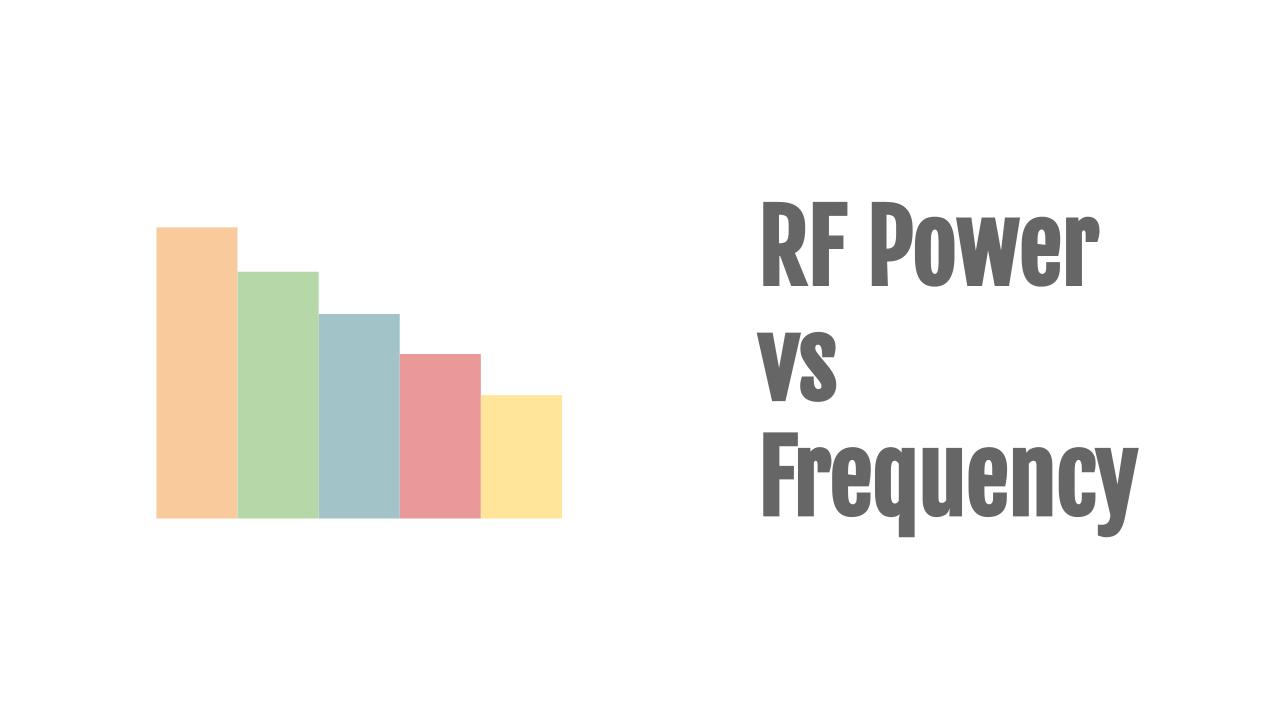This tool provides the RF power at a specified distance from a source transmitter and frequency of operation. It can be used to study the effect of frequency on received RF power.
Calculator
Enter
- Transmit Power Pt (select the appropriate units of Watt or dBm)
- Frequency of operation f
- Distance d
- Transmit Antenna Gain GTx
- Receive Antenna Gain GRx
The calculator will provide the free space path loss and the received signal power in Watt or dBm.
Example Calculation
For a frequency of 1000 MHz and source power of +30 dBm, the received signal power at a distance of 10 meters is -22.45 dBm.
The table below shows the RF power as a function of frequency for the same ten meter distance.
| Frequency (GHz) | RF Power (dBm) |
|---|---|
| 1 | -22.5 |
| 2 | -28.5 |
| 3 | -32 |
| 4 | -34.5 |
| 5 | -36.4 |
| 6 | -38 |
| 7 | -39.3 |
| 8 | -40.5 |
| 9 | -41.5 |
| 10 | -42.5 |
Background
As frequency increases, the wavelength decreases. With this, the effective aperture of an antenna used to transmit or receive a signal also decreases.
Aeff = λ2/4π
The path loss equation is derived from the following equation which shows that the received signal strength at a fixed distance d decreases with decreasing wavelength or increasing frequency.
Pr = (Pt*Gt*Gr*λ2)*(1/(4π*d2))
Where:
- Pr is the power received,
- Pt is the power transmitted,
- Gt is the gain of the transmitting antenna,
- Gr is the gain of the receiving antenna,
- λ is the wavelength of the RF signal,
- d is the distance between the antennas.
It’s also well known that higher frequency signals (such as mmWave) tend to experience greater atmospheric attenuation and absorption, resulting in higher losses over distance.
However the path loss equation does not account for these losses. Only those due to antenna gain, wavelength (frequency) and distance.
References
- Antenna Aperture on Wikipedia
